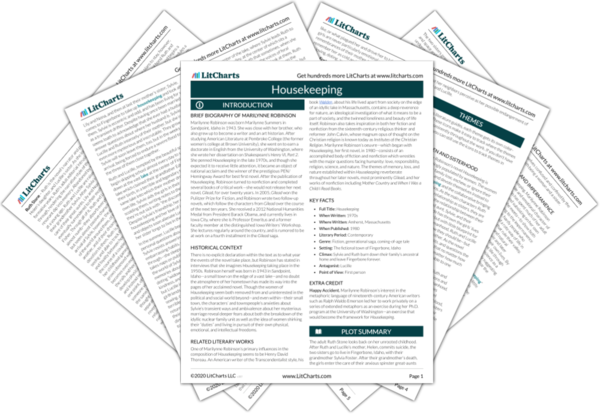One of Marilynne Robinson’s primary influences in the composition of
Housekeeping seems to be Henry David Thoreau. An American writer of the Transcendentalist style, his book
Walden, about his life lived apart from society on the edge of an idyllic lake in Massachusetts, contains a deep reverence for nature, an ideological investigation of what it means to be a part of society, and the twinned loneliness and beauty of life itself. Robinson also takes inspiration in both her fiction and nonfiction from the sixteenth-century religious thinker and reformer John Calvin, whose magnum opus of thought on the Christian religion is known today as
Institutes of the Christian Religion. Marilynne Robinson’s oeuvre—which began with
Housekeeping, her first novel, in 1980—consists of an accomplished body of fiction and nonfiction which wrestles with the major questions facing humanity: love, responsibility, religion, science, and nature. The themes of memory, loss, and nature established within
Housekeeping reverberate throughout her later novels, most prominently
Gilead, and her works of nonfiction including
Mother Country and
When I Was a Child I Read Books.
